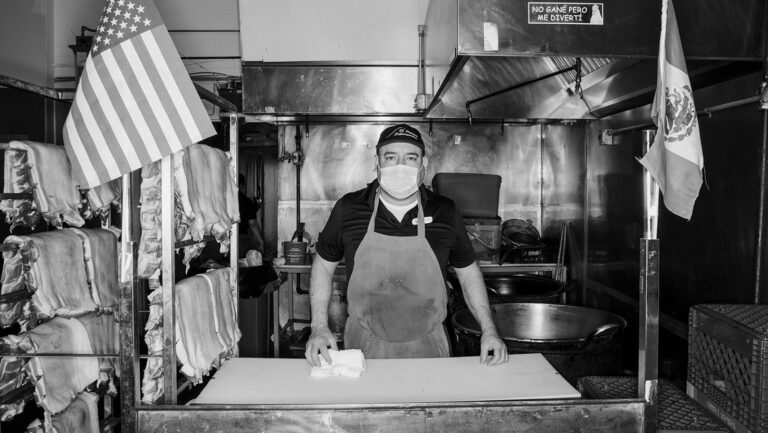People get famous for all kinds of stupid reasons. Look no further than Snooki and Kim Kardashian for bewildering proof. It’s human nature, perhaps, to be fascinated by extremes, whether they come in the form of money, personality, emotion or action. This is the concept that fuels John Millington Synge’s The Playboy of the Western World .Set at the turn of the last century in a small Irish town, the play opens on a tavern frequented by simple folk leading simple lives. Shawn Keogh is a dull young man who’s set on marrying the sharp-tongued barmaid Margaret Flaherty (referred to as Pegeen Mike), who has no interest in the guy. Pegeen’s father, the tavern owner, is a drunk, and he and his two similarly inebriated friends stumble in on their way to a late-night wake. Enter Christopher (Christy) Mahon, a handsome wanderer who claims to be running from the law for killing his father.Rather than scorn the stranger or turn him in, the townspeople are enamored with Christy. They declare him brave and decide to shelter him at the tavern, to Shawn’s dismay and Pegeen’s overt enthusiasm. A deep, brooding infatuation develops between the barmaid and the wanderer, but that doesn’t prevent all the other women in town from being equally smitten with him, including the resident wily widow. Christy becomes—in an odd and sort of twisted way—the town hero, seemingly for no other reason than he’s done something out of the ordinary that’s rooted in darkness and passion. As the story continues, it evolves into a greater commentary on the nature of status and heroism, especially when the townspeople find out Christy isn’t exactly who he says he is. The Playboy is a comedy that toys with both satire and drama. Performed for the first time in Dublin in 1907, audience members actually rioted because they were incensed at how the Irish were portrayed. Whether due to cultural shifts or how the material is handled, the Adobe Theater’s production of the show isn’t terribly funny, aside from a few belly-bouncing moments, and it doesn’t come across as particularly satiric, either. The show stays squarely in the dramatic realm, which in this case makes grabbing the audience’s attention more difficult. Most of the acting is good, with some veteran supporting actors lending their weight to the production. Georgia Athearn delivers a strong Widow Quinn, who tries to seduce Christy. Athearn is clever and confident in the role, and her extensive theatrical experience is evident. Likewise, William F. Lang serves as a wonderful Old Mahon (Christy’s father). With an admirable list of plays on his résumé, it’s unsurprising that Lang is smooth as silk (even when he’s delirious) as the bludgeoned man. Perhaps most impressive is Alan Hudson, a native of Dublin whose accent is a joyful addition to the mix (he’s also a retired professor of linguistics at UNM and an Irish dialect coach). Hudson’s vocal work isn’t the only thing that’s convincing. His acting brings Philly O’Cullen to life, one of Michael James Flaherty’s drunken and philosophical friends.As is generally the case in Albuquerque, the rest of the accents range from acceptable to strange. As my viewing companion (former Arts Editor Erin Adair-Hodges) notes, one actor sounds eerily like John Wayne trying to affect an Irish accent. The actors newer to the stage are obviously so, but not all their performances are bad. Take our two leads—Graham Gentz, who plays Christy Mahon, and Bridget S. Dunne, who takes on Pegeen Mike—as examples. They’re relatively green, with a few credits to each of their names. While some of their inexperience is noticeable, they both deliver fine, charming performances. Their mannerisms are a bit too over-the-top, with Dunne’s eye-rolling and Gentz’ eye-twitching getting more stage time than necessary, but both are equally passionate. Gentz is tasked with delivering the play’s emotional climax, and he does a good job of it, pulling on some heartstrings. Both actors have stores of potential, and it’ll be fun to see how they develop over the next few years.The real thing missing from the show is connection. All cast members say their lines, some well and others not as well, but the words feel like lines in a script, not thoughts rising forth. When it comes to the roiling lust we’re supposed to sense between Christy and Pegeen, the audience only knows that yearning is supposed to be there because we’re told so. The Playboy of the Western World (by the way, “playboy” meant “trickster” in early 1900s Ireland) is pleasurable enough. The cast supplies some enjoyable moments, but the group lacks the honed precision necessary to make this kind of play sing.
The Playboy of the Western World
Runs through Feb. 6Fridays and Saturdays 8 p.m.; Sundays 2 p.m. Adobe Theater9813 Fourth Street NWTickets: $14, $12 seniors and students898-9222, adobetheater.org











